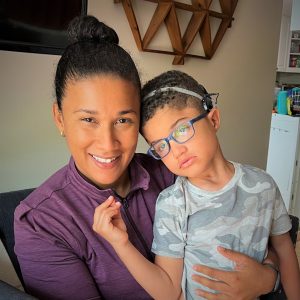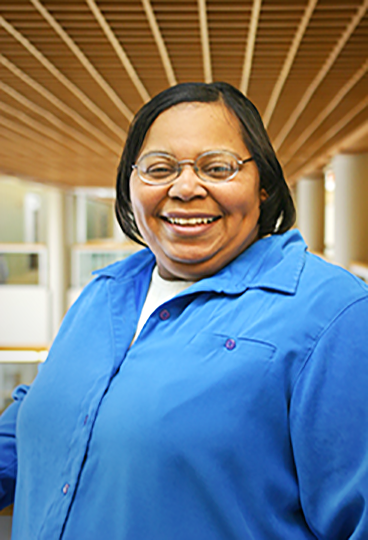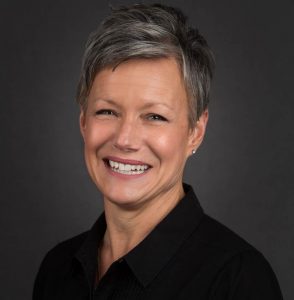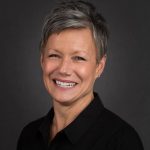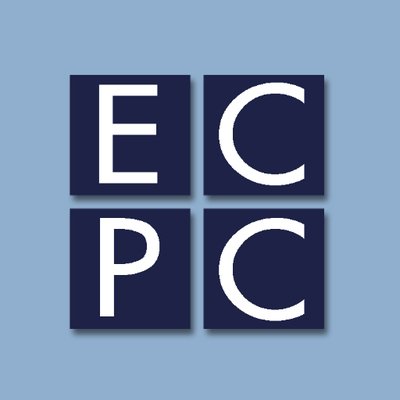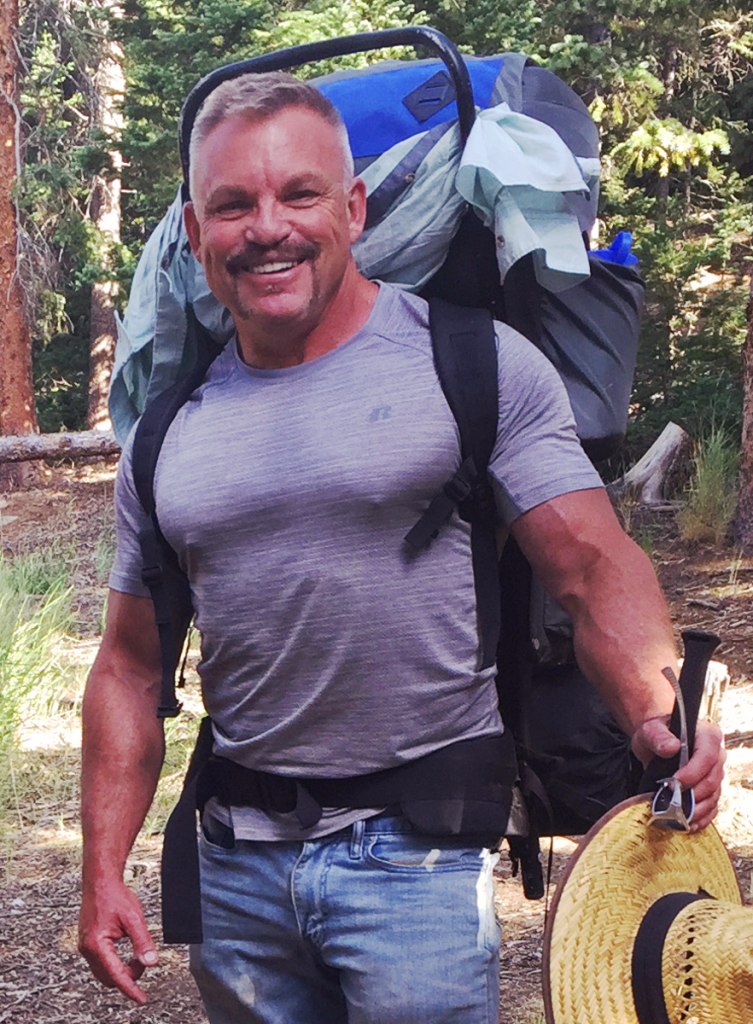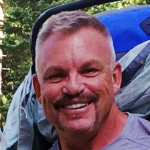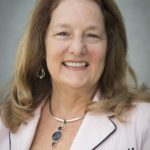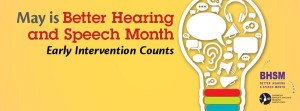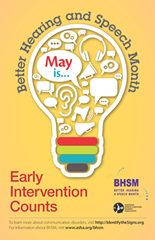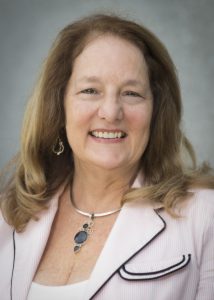
Deborah Dixon, ASHA Director of School Services
“True collaboration requires a lot of trust, but once you build that trust you understand that no one person can be responsible for a child’s progress”.
As part of Better Hearing and Speech Month (BHSM) ED interviewed Deborah Dixon, M.A., CCC-SLP, who is American Speech-Language-Hearing Association’s (ASHA) Director of School Services. Deborah leads ASHA’s schools team to provide resources, technical assistance and contemporary information to school-based speech-language pathologists (SLPs). She has presented to many state and national organizations and serves as ex officio to several ASHA committees. Some of her areas of expertise are integrating state standards; workload strategies; the role of the SLP in multi-tiered systems of support (MTSS) and response to intervention (RTI); dynamic service delivery for SLPs; eligibility and dismissal criteria for school SLP services; and contemporary issues in school practice.
Note to readers: Given the importance of high quality early learning opportunities for young children with disabilities, OSERS will periodically highlight voices from the broader field of early learning in our blog.
ED: Speech-language pathologists (SLP) are trained to work across the age span, why did you become interested in working specifically in schools?
Deborah: Most of my practice career [as an SLP] was in and around Pittsburgh in various school districts. I was always interested in working in a school setting since the most important things in a child’s life happen in the context of the child’s family and in their schools. In the school setting I enjoyed building relationships with teachers and other colleagues, families, and children. Working with children at an early age allows you to watch them change and grow overtime and to have an impact on many aspects of their development, including social, emotional, language, and literacy. With a preventive mindset, we can catch children early when they are struggling with language or communication, and then work with them and the adults in their lives to improve their outcomes.
ED: What is the SLP’s role in an early learning or school environment?
Deborah: When most people think about a speech-language pathologist, they think about helping children with make correct speech sounds, but an SLP’s role is much broader and includes all aspects of communication. SLPs serve an important role in assisting students to be “reading ready” by helping them hear and process differences in sounds, expand their vocabulary, use and understand grammar, build skills to summarize and sequence information, and problem solve and interpret idiomatic language. They support both oral and written language. SLPs also help students engage socially with one another; helping them learn a wide variety of verbal and nonverbal skills that support more successful interactions with peers and adults.
One of ASHA’s major strategic goals is to promote cross-discipline collaboration—encouraging SLPs and their colleagues in schools (teachers, parents, physical therapists, occupational therapists, etc.) to work more collaboratively to address the needs of the whole child. We need to bring the various perspectives from different professions together to conduct child assessments, develop an intervention approach focused on improving outcomes for children holistically, and assess whether what we, the professionals, are doing is working. True collaboration requires a lot of trust, but once you build that trust you understand that no one person can be responsible for a child’s progress. A team made up of the family and professional, each with different expertise, can make all the difference.
ED: What are some of the challenges in this work, and what strategies have you tried to overcome them?
Deborah: One of the biggest challenges is the school day. For meaningful collaboration, professionals need time to meet regularly. It is a huge struggle to find collaborative planning time because of the way schools are scheduled. One solution to this is getting buy-in from program or school leadership on how teams need to work to ultimately benefit children. Currently there isn’t a great understanding of the different roles and responsibilities of specialists (SLPs, OT, PT) in early learning programs and schools, or how they contribute to improving the developmental and educational outcomes of all children.
One successful strategy for improving collaboration is integrating SLP services into the program or classroom. If an SLP works in the general education classroom, the teacher sees their expertise in action and vice versa. The SLP also witnesses experiences the demands the teacher faces every day. Both professionals gain a new appreciation for roles and expectations, and have an opportunity to work together. Another strategy is to make staff assignments based on workload and not simply on numbers of children.
When there is concern in a school such as literacy rates or behavioral problems, bringing a team together can be really effective. Schools and early learning programs need to create a learning community that engages professionals and families to collaboratively develop solutions for such issues, including using data to inform interventions. If, as members of such a team, we all understand what we each other are trying to achieve, we can work together much more efficiently and effectively.
Families are a key partner in this collaborative work. We are getting better at figuring out how to engage working families. This is important, because most families do want to be involved. We must use technology and innovative solutions to involve families. We often tell families, “you need to work on this,” but we don’t engage with them on the other piece, how you build this into your everyday activities. This type of engagement can go a long way, and provide great support and perspective for the family and professional. For example, how do you use the grocery store to facilitate speech and language development?
ED: May is Better Hearing and Speech Month (BHSM). Why is it important to have a BHSM?
Deborah: BHSM is an annual opportunity to raise awareness about communication disorders, share strategies for building communication skills every day, and promote the important role SLPs and audiologists play in helping to build communication skills.
This year’s BHSM theme is “Communication—the Key to Connection.” This provides an opportunity to underscore that we engage with one another through communication. As adults, we are role models for children in our communication; even in terms of our problem solving, disagreeing, etc. Being very deliberate in terms of modeling positive communication skills is important. Additionally, being aware of and understanding the cultural nuance of communication gives us an opportunity to embrace and celebrate our diversity.
More information on BHSM can be found at: http://www.asha.org/public/
Blog articles provide insights on the activities of schools, programs, grantees, and other education stakeholders to promote continuing discussion of educational innovation and reform. Articles do not endorse any educational product, service, curriculum or pedagogy.

